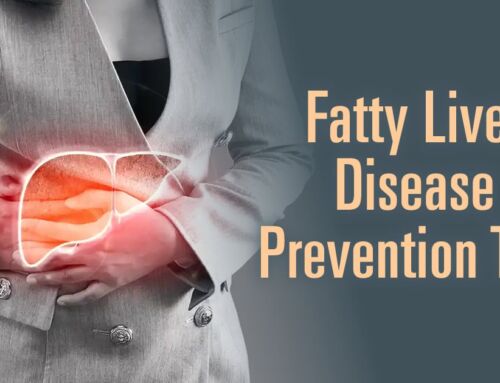Everyone experiences bloating and gas on occasion. You may have eaten something that didn’t agree with you. Or you simply ate too much, too fast.
No matter the reason you experience bloating and gas, it can be uncomfortable and embarrassing all the same.
Bloating and gas that become more frequent may signify a medical problem. This article will discuss how much gas is normal, how to tell if you’re bloated, and the common causes of bloating and gas. Lastly, we’ll highlight when you should see a GI doctor for bloating and gas.
How Much Gas Is Normal?
Research shows that people pass gas an average of 8 to 14 times per day. But some people may pass gas more often than others. Passing gas as many as 25 times per day is a normal part of digestion.
Gas naturally enters the digestive tract when you swallow air. Bacteria in the large intestine also produce gas when they break down undigested carbohydrates like fiber and sugars. Belching or flatulence is your body’s way of releasing excess gas.
How Do I Know If I’m Bloated?
You can usually tell that you’re bloated if your abdomen feels tight or full. You may also feel gassy. Many times, passing gas can help relieve abdominal discomfort.
Common signs that you’re bloated include:
- Abdominal cramps
- Abdominal pressure
- Abdominal distention
- Belching
- Flatulence
- Constipation
If you experience bloating more than 3 to 4 times per week, it’s a chronic or persistent problem.
Causes of Bloating and Gas
Many factors can contribute to bloating and gas. You can experience these symptoms due to dietary choices, certain behaviors, or a medical condition.
Foods and Beverages
The following foods and beverages can increase the occurrence of bloating and gas:
- Cruciferous vegetables. Broccoli, cauliflower, and Brussels sprouts can cause bloating and gas because they contain FODMAPs. FODMAPs are fermentable oligosaccharides, disaccharides, monosaccharides, and polyols. Unfortunately, these sugars are poorly absorbed in the small intestine. When FODMAPs enter the large intestine, bacteria break them down and produce gas.
- Legumes. Beans, lentils, and peas contain high amounts of fiber. If you eat too many, you may experience uncomfortable bloating and gas. Legumes also contain FODMAPs. Some people are sensitive to FODMAPs and can experience digestive problems after eating them. Both fiber and FODMAPs get broken down in the large intestine and may cause bloating and gas.
- Apples. Like cruciferous vegetables and legumes, apples contain fiber and FODMAPs. This combination can increase gas and bloating in some people.
- Carbonated beverages. Beverages such as soda, sparkling water, and beer contain carbon dioxide gas. When you drink these beverages, you swallow large amounts of gas. This excess gas can worsen bloating symptoms. Many carbonated drinks also contain artificial sweeteners that can increase bloating and gas.
- Dairy products. Consuming dairy products like milk, yogurt, ice cream, and cheese can cause bloating and gas for many people. This is because dairy products contain lactose. Interestingly, around 75% of the world’s population can’t digest lactose. Lactose intolerance can cause bloating, gas, abdominal pain, and diarrhea.
Behaviors
Behaviors that cause you to swallow excessive air can cause bloating and gas. You should avoid the following behaviors:
- Drinking through a straw
- Chewing with your mouth open
- Talking while eating
- Sucking on hard candy
- Chewing gum
- Not thoroughly chewing food
- Eating too fast
- Smoking or chewing tobacco
Medical Conditions
Bloating and gas can occur with other digestive symptoms. This may be a sign of medical conditions such as:
- Small intestinal bacterial overgrowth (SIBO). This condition occurs when bacteria grow in the small intestine, where they don’t belong. SIBO can cause bloating, gas, constipation, diarrhea, abdominal pain, and nutrient malabsorption.
- Irritable bowel syndrome (IBS). This condition causes disordered bowel habits. Symptoms of IBS can include abdominal pain, abdominal distention, bloating, gas, constipation, and diarrhea.
- Inflammatory bowel disease (IBD). This condition includes Crohn’s disease and ulcerative colitis. Chronic inflammation in the digestive tract can lead to bloating, gas, abdominal pain, bloody stools, and fatigue.
- Celiac disease. This is an autoimmune disease that’s triggered by eating gluten. Intestinal symptoms of celiac disease can include abdominal pain, constipation, diarrhea, weight loss, bloating, nausea, and vomiting.
When to See a GI Doctor for Bloating and Gas
Temporary discomfort and bloating are normal, and no cause for concern. But if you experience chronic or persistent bloating, you should see a GI doctor to rule out possible medical complications.
GI doctors receive specialized training in the treatment and diagnosis of digestive conditions. This makes them the best medical professionals to find the source of excessive bloating and gas.
You should see a GI doctor if you experience bloating more than 3 to 4 times per week. Or if you have any of the following symptoms:
- Abdominal pain
- Rectal bleeding
- Bloody stools
- Change in bowel habits
- Nausea
- Vomiting
- Weight loss
- Fatigue
In some cases, these symptoms can be a sign of a serious medical condition like colon cancer. Finding the cause of your symptoms as soon as possible can often make your condition easier to treat. In the case of colon cancer, it can mean the difference between life and death.
A GI doctor can use a variety of tests to evaluate and diagnose your symptoms. These tests may include breath tests, an upper endoscopy, a colonoscopy, and a capsule endoscopy.
Find Relief From Bloating and Gas
Occasional bloating and gas are a natural part of the digestive process. It’s perfectly normal to pass gas up to 25 times per day.
You should get help for bloating and gas if:
- You experience bloating more than 3 to 4 times per week
- You pass gas excessively
- You also have other digestive symptoms
A GI doctor can help you find relief from excessive bloating and gas by treating the root of your problem. Treatment may include dietary changes, lifestyle modifications, and medication.
If you experience a change in your digestive health, you should see a GI doctor to prevent future health complications. You can request an appointment online or call our office at 210-615-8308. Don’t live with chronic bloating and gas any longer — schedule an appointment today!



